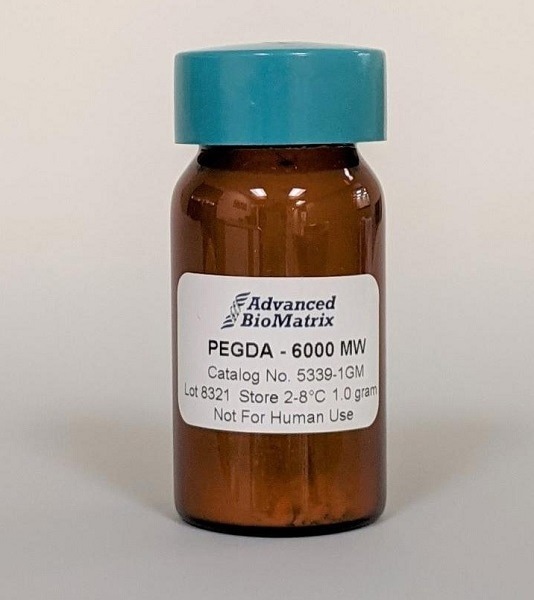Overview
A transparent hydrogel called polyethylene glycol diacrylate (PEGDA) quickly gels at room temperature in the presence of a photoinitiator and light. PEGDA can be modified to incorporate a variety of biological molecules and is hydrophilic and elastic. There are weights of 1, 3.4, 6, 10, and 20 K.

Image Credit: Advanced BioMatrix
Features
- PEGDA hydrogels, which are thought to be biologically inert (“blank slates”) and whose mechanical properties can be adjusted over a wide range of moduli, are effective tools for revealing fundamental cellular biology
- PEGDA is a developing scaffold for tissue engineering and regenerative medicine due to its rapid at room temperature polymerization, low energy requirement, high water content, elastic nature, and ability to be tailored to incorporate various biological molecules
- PEGDA is >80% acrylated and is a crosslinker repeating polymer crosslinker
- It can be used to create a PEGDA-only hydrogel in the presence of a free-radical chain photoinitiator and light source or as a thiol-reactive crosslinker in the HyStem systems at low concentrations
- Without cellular attachment sites, PEG-only gels typically cannot support cell attachment
Applications
- Regular and 3D cell culture
- Tissue engineering
- Photolithography
- PEGDA should be kept at –20 °C in its original, unopened vial for up to a year
- PEGDA solutions that have been reconstituted can be kept at –20 °C for about one month